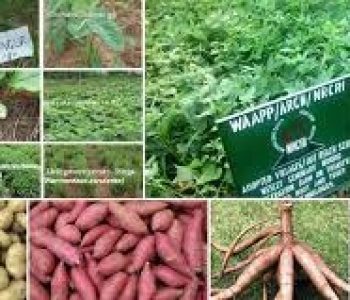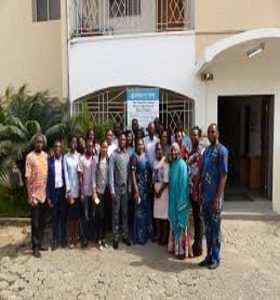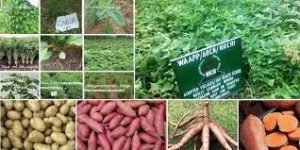- Business
- No Comment
Our target are early maturing crops over food security – ARCN Boss

Professor Sharubutu, Executive Secretary of Agricultural Research Council of Nigeria (ARCN) recently harped on the development of the extension services which the Council had already started through the provision of extension teaching materials and deploying them to farming communities.
The ARCN boss made this known recently while answering questions from newsmen. He revealed that early maturity crops could encourage farmers to plant twice in any farming season, especially in the southern part of the country.
“We have identified the early maturing crops like cowpea, maize, rice, millet, yam, cassava which can stabilize the country given the threat challenges we are witnessing. The point is that the late-maturing crops as important as their gestation period is long, and because it is long, in between one harvesting season and the other, you are definitely going to have problems”, he said.
Sharubutu also said that the Council has mandate to develop early maturing crops in an effort to address the challenges of food security, noting that the development of extension services is one of the council’s top priorities in order to communicate new farm technics and technologies to farmers in the rural areas.
Addressing food threats posed by the outbreak of the COVID-19 pandemic and the lingering insecurity that prompted the Minister of Agriculture to direct the Council to focus more on the production of early maturing crops, the ARCN boss said, “In the wisdom of the Minister of Agriculture, there is always this threat of hunger and lack of guarantee for food security in view of the challenges that are staring us in the face.
“First of all, what are the threats? … the threat of production losses which are drought, lack of arrival of inputs on time but what informed the decision of the Minister is the issue of Covid-19 and the issue of insecurity. A situation where you cannot guarantee staying off your farm for a very long time constitute a serious threat to the food security situation.
“So based on that, let us look at early maturing crop, these are the staple crops we have in the country where somebody can easily take it with little ingredients. In addition, their cost of production is low and in the southern part of this country, the weather is such that we can have plantings per growing seasons. If you go to somewhere like Ekiti or Ibadan, Imo, you will find out that you can grow maize twice per season. However it will require a good knowledge of the crop, its growing habit and nutrient requirement to achieve this, and this is where the experts come in”.
Sharubutu further stated that the council has had to improve its extension activities, asserting that extension mainly was with the Agricultural Development Programs (ADPs) but after the exhaustion of the funds provided by international donor agencies, the ADPs all of a sudden went low completely because various state governments were unable to sustain it.

Therefore, he said, “The personnel may be there but an extension is not all about just personnel, there are facilities and equipment that you have to use in order to carry out these extension activities.
“When you get to farmers, there is what we call extension teaching methods, and there are various ways in which you can reach a farmer in order to sell an idea to him; motion pictures, palm flex, still pictures, the language of communication, community meetings, and there are situations where you need to use a combination of these methods, and the quickest one we have found to have a serious impact is while having community meetings, you also need to use pictures both motion and the rest, so we have to provide these facilities.
“In addressing about 100 farmers, if you don’t have a public address system, while you are talking, other persons will be distracted because they are not hearing what you are saying, and so your extension teaching method will not be effective. So you need a public address system and vehicles to move from one village to another to hold meetings, you also need video materials to demonstrate how to undertake good farming practice. All these are provided for in the Act establishing ARCN”.

